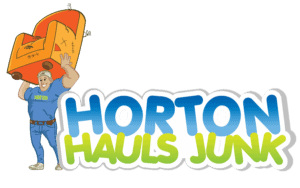Recycling at home is an easy way to help the environment significantly by reducing the amount of waste you are sending to area landfills and incinerators. Recycling also aids in conserving our natural resources and prevents pollution by reducing the need to use new raw materials. By getting your family involved in the recycling process, you ensure that they are cultivating a lifelong habit that will help sustain the environment for generations. Here are the basics:
Most of us have a local recycling program in our communities, either curbside pickup or locations where we can drop off our recycling. Find out the specifics of your local recycling program by checking your city’s website for information on recycling. You can also check for recycling locations in your area.
After you discover what kind of recycling program is available in your city, find out what can and cannot be recycled in your local recycling program. The basics are paper, glass, aluminum/steel, and plastic. Find out specifically what plastic materials are accepted and how you need to sort your recycling.
If you have curbside recycling, find out what day of the week the recycling will be collected and if it will be collected weekly or every other week. Circle the day on your calendar or put a reminder in your cellphone. There aren’t many things more frustrating than having the recycling truck wake you as you realize you forgot to take your recyclables out to the curb.
If you do not have curbside recycling, find out the location of your closest recycling center and what things can be recycled there. Make sure you have a location designated in your home for all your recycling and make it a priority to get to your recycling center at least once every two weeks, depending on the amount of recycling your household generates. Already recycling? Here are some tips to take your recycling to the next level:
Look for products can be recycled or that contain recycled content. Supporting companies that use recycled materials will ensure that more products will be made utilizing recycled materials.
Recycle your organic waste by composting. Composting is a great way to recycle garden and kitchen waste like plant trimmings and kitchen scraps. Making compost is an easy way to reduce the organic waste going to your local landfill and gives you nutrient-rich compost to add to your soil. Some cities offer compost bins at a reduced rate, or you can find a variety of compost bins at your local gardening center.
Recycle your gently used clothes, books, and other household goods by donating them to a local charity’s thrift store. Most charities will be happy to come to your home to pick up your donation.
Avoid buying products that contain hazardous materials. It takes some planning to recycle products that contain hazardous waste since you cannot throw hazardous materials in your garbage and you can’t put them in your recycling bin. Strive to find safer alternatives to household cleaners and buy non-toxic products whenever you can.







